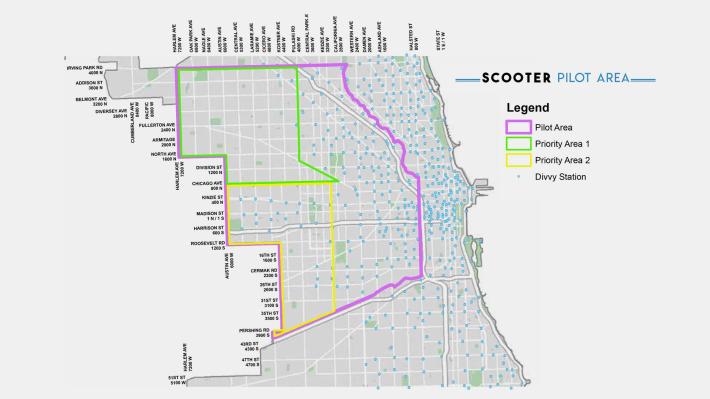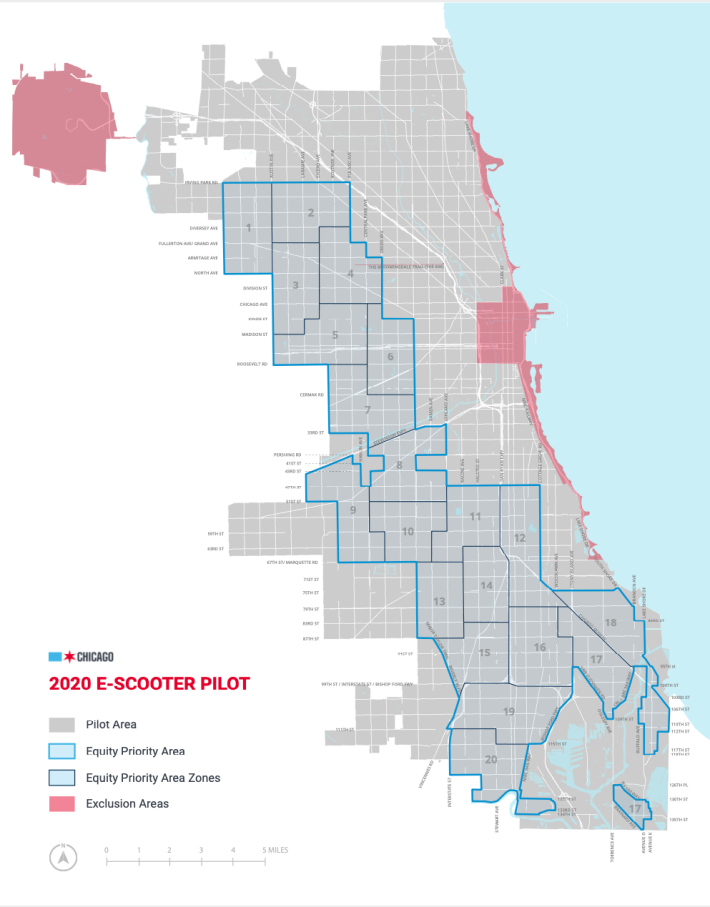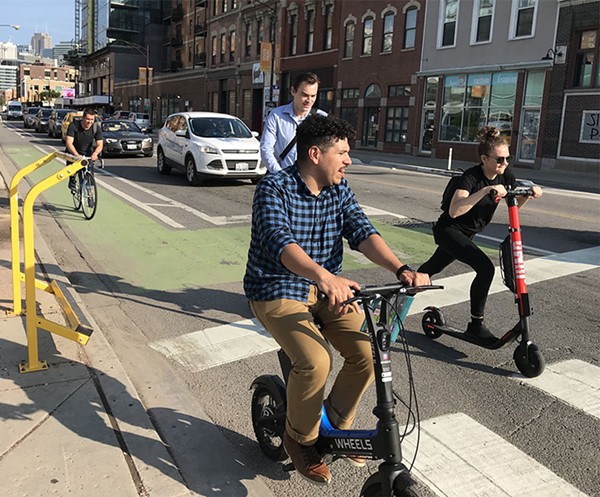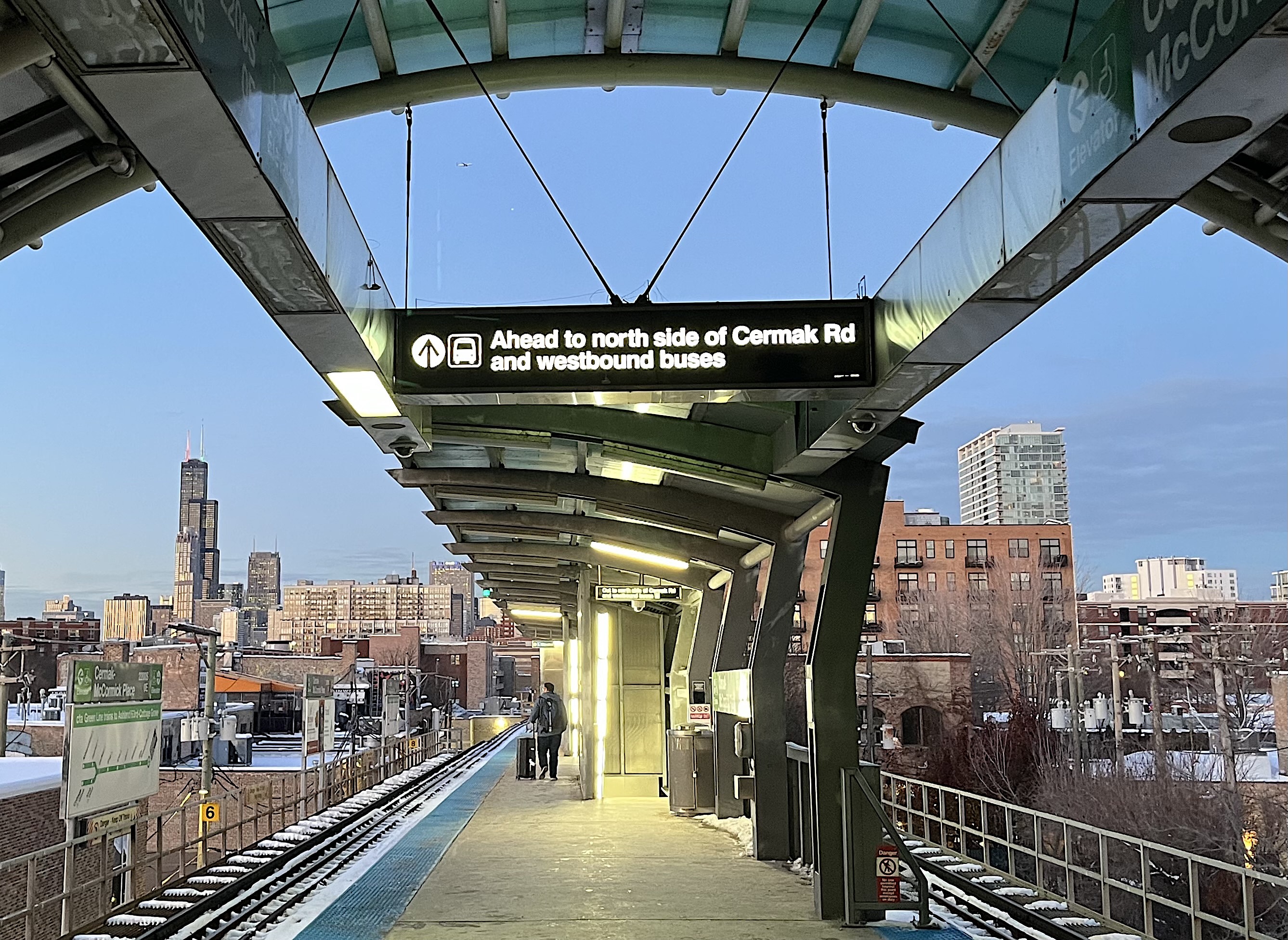Good news for fans of dockless electric scooters: The city of Chicago is gearing up for the next scooter pilot later this summer. Many transportation advocates will also be pleased to see that the rules of the pilot include things that organizations like the Active Transportation Alliance and the mobility justice nonprofit Equiticity have pushed for. These include a "lock-to" requirement, mandating that scooters include built-in locks for securing them to bike racks or poles; excluding the devices from the central business district; and provisions to promote racial and economic equity. Pandemic safety concerns are also influenced how the test will work.
Last year's pilot involved ten companies allowed to deploy 250 vehicles each in the West and Northwest side pilot area. This year nine companies (JUMP and Lime, which participated in the 2019 pilot have since merged) will be vying for three final slots for this year's test in a "Hunger Games"-like competition. The firms must submit applications by June 25, and the three qualifying vendors will be announced in July. The program would launch in late July or August.

The city says the goal of the 2020 test is to "focus on issues of equity, parking solutions and safety, especially so during this time of the unprecedented COVID-19 health crisis." It says the pilot will also look at "whether scooters can be a safe and effective mobility option for the long-term in Chicago and in particular whether scooters can improve mobility for communities that face disproportionate transportation, health and economic barriers."
There will be rules to promote pandemic safety. Companies will be required to clean their vehicles each time their staff come in contact with them. Riders will be advised to wear gloves and wash and/or disinfect their hands after using the gadgets.
Each of the three finalists will be allowed to deploy up to 3,333 devices, for a total fleet of 10,000 (OK, 9,999, but who's counting) -- that's four times as many as last year. Unlike last year's limited pilot area, this one will span the entire city, minus the CBD, defined by the area bounded by Roosevelt Road, Halsted Street, Division Street, and Lake Michigan, minus the area north of Chicago Avenue and west of Clark Street. The devices are also banned from the Lakefront Trail and all shoreline areas east of the path, as well as the Bloomingdale Trail (although that prohibition didn't stop people from riding on that elevated path last year.)

Vendors will be required to deploy half of their devices throughout priority areas on the South and West sides that will be subdivided into 20 zones, "in order to provide equitable and balanced distribution citywide." As part of the "lock-to" requirement, to end a trip the devices will need to be secured to a bike rack or other fixed object.
The companies' apps will be required to be ADA compliant, and vendor names and phone numbers must be written in braille and raised lettering on every device. It will be recommended that the gadgets emit low sounds to alert visually impaired people to their presence on the street, and the companies are encouraged to provide scooters that are accessible to people with mobility challenges, such as seated models.
Vendors will be required to provide a package of digital/social media educational material. They will also be required to work with the police department and Chicago Department of Transportation's walking and biking safety ambassadors to host educational events in designated areas and to conduct helmet giveaways. An in-app safety quiz will be required for all new riders.
Streetsblog's Steven Vance had a couple of criticisms of the plan. He argued that the downtown exclusion zone is too large, suggesting that the no-scoot area be instead limited to the area bounded by the river, the lake, and Ida B. Wells Drive.
Steven was also concerned about the possibility of the lock-to requirement leading to a bike park crunch. CDOT has installed hundreds of new bike racks across the city recently in preparation for the long-delayed Divvy bike expansion (we should have an update on that in the near future), which includes lock-to electric bikes. However, another 10,000 lock-to scooters could well reduce parking capacity. CDOT didn't have an immediate answer on whether the scooter companies will be required to fund more scooter and bike parking, ideally in the form of on-street parking corrals.
At any rate, with scooters allowed almost anywhere in the city, they'll become much more useful for transportation as opposed to just joy rides, hopefully replacing some car trips. After all, that's the point of these pilots.





